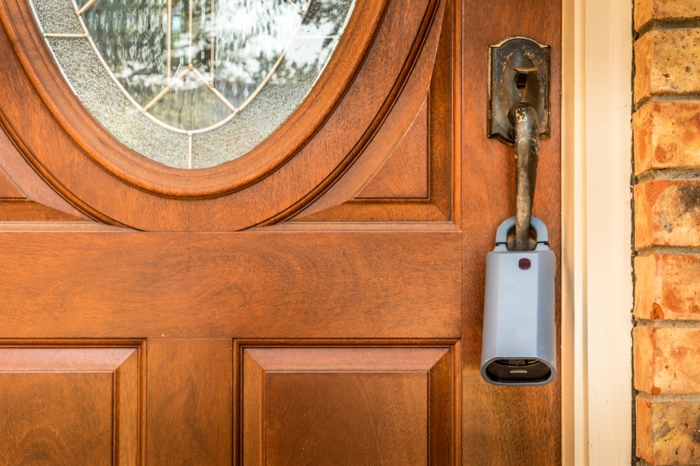The hospitality industry is at a crossroads, facing the twin challenges of enhancing guest security and ensuring a smooth, welcoming onboarding experience. Traditional guest verification methods, often manual and time-consuming, no longer suffice in an era defined by the demand for speed, efficiency, and heightened security. Automated Know Your Customer (KYC) verification emerges as a beacon of innovation, promising to reconcile these demands by revolutionising how guests are onboarded.
Introduction to Automated KYC Verification
Automated KYC verification represents the next frontier in hospitality management, offering a sophisticated approach to confirming guests’ identities before they even set foot on the property. This technology-driven process goes beyond the capabilities of traditional verification methods, employing advanced algorithms, artificial intelligence (AI), and biometric recognition to perform thorough checks quickly and accurately. The transition from manual to automated KYC verification marks a significant evolution in the hospitality industry, addressing the urgent need for more secure and efficient guest onboarding procedures.
Understanding Automated KYC Verification
At its core, automated KYC verification is about leveraging technology to authenticate guests’ identities without the need for manual intervention. This process involves several key components, including AI to analyse identification documents, machine learning algorithms to improve accuracy over time, and biometrics for a unique layer of security. Unlike traditional methods that rely heavily on physical document checks and in-person verification, automated KYC systems can verify identities online, significantly speeding up the onboarding process while maintaining high security standards.
Automated KYC differs from traditional verification methods in its ability to process and analyse vast amounts of data in real-time. This capability allows for immediate identification and authentication, eliminating delays and enhancing the guest experience. Moreover, automated KYC systems are designed to adapt and learn, continuously improving their verification accuracy and reducing the likelihood of false rejections or acceptance of fraudulent identities.
The Need for KYC Screening in Hospitality

The hospitality industry faces unique challenges that make effective KYC screening essential. Fraudulent bookings, identity theft, and compliance with anti-money laundering (AML) regulations are just a few of the issues that properties must navigate daily. Without robust KYC screening, properties are vulnerable to security breaches, financial losses, and legal penalties, all of which can severely damage a brand’s reputation and guest trust.
Automated KYC screening addresses these challenges head-on by providing a secure, reliable method for verifying guest identities. This not only helps in preventing fraud but also ensures properties meet regulatory compliance requirements without sacrificing operational efficiency. By automating the verification process, properties can significantly reduce the risk of human error, providing an additional layer of security and peace of mind for both guests and property managers.
The KYC Verification Process
The automated KYC verification process unfolds in several key steps, beginning with the collection of guest information. Guests are asked to submit identification documents electronically, which the KYC system then analyses for authenticity. Advanced document recognition technology can detect forged or tampered documents, flagging any discrepancies for further review.
Following document analysis, biometric verification methods, such as facial recognition, are used to match the guest with the photo ID provided. This step ensures that the person making the booking is the same person who will be staying at the property, adding a critical layer of security to the onboarding process.
Throughout these steps, the KYC system utilises AI and machine learning to cross-reference information against global databases, checking for any potential issues such as involvement in financial crimes or discrepancies in personal information. This comprehensive approach ensures a high level of accuracy in guest verification, significantly reducing the risk of fraud while streamlining the onboarding process for genuine guests.
Benefits of Automated KYC Verification for Guest Onboarding
The adoption of automated KYC verification systems heralds a new era in guest management, bringing with it a multitude of benefits that significantly impact the guest onboarding experience. First and foremost, the enhanced security afforded by accurate identity verification helps in mitigating risks associated with fraud and identity theft. This rigorous approach to security not only protects the property but also reassures guests that their personal information and safety are taken seriously.
Operational efficiency sees a remarkable improvement as well, with the automation of the verification process reducing the need for manual checks and paperwork. This streamlining of procedures not only speeds up the onboarding process but also frees up staff to focus on other areas of guest service, thereby improving overall productivity. Additionally, automated KYC verification ensures compliance with regulatory requirements more effectively than manual processes, helping properties avoid potential fines and legal issues associated with non-compliance.
From the guest’s perspective, the quick and hassle-free onboarding experience is a significant draw. The convenience of completing verification processes online, without the need to wait in lines or handle physical documents, enhances guest satisfaction from the very start of their journey. This seamless integration of technology into the guest experience sets a positive tone for the stay, contributing to higher levels of guest loyalty and repeat bookings.
Implementing Automated KYC Verification Systems
The implementation of an automated KYC verification system requires careful planning and consideration to ensure it integrates smoothly into existing operational workflows. The first step involves evaluating the specific needs and challenges of the property, including the typical guest profile, existing security measures, and compliance requirements. This assessment helps in selecting a KYC system that offers the right balance of security, efficiency, and user experience.
Key considerations in choosing a system include the accuracy of verification, ease of integration with existing property management software, and the system’s adaptability to changing regulations and technology. The choice of provider is critical, with factors such as reliability, customer support, and experience in the hospitality industry playing a crucial role in the decision-making process.
Once a system is selected, the next step is integration and staff training. Ensuring that the system works seamlessly with existing booking and check-in processes is essential for maintaining operational continuity. Staff training is equally important, as team members need to be familiar with the new system, understanding how to manage it and how to address any guest queries or concerns. This phase may also include a pilot program, allowing for adjustments and fine-tuning before a full rollout.
Automated KYC Verification and Guest Experience
The introduction of automated KYC verification systems significantly enhances the guest experience, marking a departure from traditional, often cumbersome, onboarding processes. Guests appreciate the convenience and speed of digital verification, which allows them to complete necessary procedures in their own time, even before arrival. This reduction in wait times and elimination of paperwork contributes to a smoother, more enjoyable start to their stay.
Moreover, the use of such technology conveys a message of professionalism and attention to security, which can enhance the property’s reputation in the eyes of guests. The assurance that their identity and personal information are being handled with the utmost care and sophistication fosters trust, encouraging guests to view the property as a preferred choice for future stays.
Balancing thorough verification with a positive guest experience is key. Automated KYC systems designed with user experience in mind feature intuitive interfaces and clear instructions, ensuring guests can easily navigate the verification process. Providing support and guidance, either through automated prompts or live assistance, can further alleviate any concerns, making the process as seamless and stress-free as possible.
Security and Privacy Considerations in Automated KYC
As properties embrace automated KYC verification, the imperative to safeguard guest data becomes paramount. Advanced encryption techniques and secure data storage solutions are integral to these systems, ensuring that personal and sensitive information is protected against unauthorised access and breaches. Compliance with global data protection regulations, such as GDPR, underscores the commitment to privacy, requiring transparent handling and processing of guest data. Properties must navigate these waters carefully, establishing trust with guests by demonstrating that their information is not only used responsibly but also protected with the highest standards of security.
Overcoming Challenges with Automated KYC Verification
Adopting automated KYC verification systems can present hurdles, ranging from the initial financial investment to potential resistance from guests unfamiliar with digital processes. Ensuring smooth integration into existing operational frameworks demands meticulous planning and flexibility. Addressing guest concerns about privacy and data security requires clear, reassuring communication about the measures in place to protect their information. Continuous staff training is essential to keep pace with evolving technologies and regulatory landscapes, ensuring that team members are confident in using the system and in addressing any guest inquiries or issues.
Future Trends in Automated KYC Verification for Hospitality
The horizon of automated KYC verification in hospitality is marked by rapid technological advancements. The integration of more sophisticated AI and machine learning algorithms promises even greater accuracy and efficiency in identity verification processes. Looking forward, we may see the rise of decentralised identity solutions, leveraging blockchain technology for enhanced security and privacy. As guest expectations continue to evolve, staying abreast of these trends and incorporating cutting-edge solutions will be crucial for properties aiming to maintain a competitive edge.
The Strategic Importance of Automated KYC Verification
Automated KYC verification stands as a cornerstone in modernising guest onboarding, offering a seamless blend of security, efficiency, and enhanced guest experience. This strategic tool not only fortifies properties against fraud and compliance risks but also paves the way for more personalised and engaging guest interactions. As the hospitality industry moves forward, the adoption of automated KYC systems will be instrumental in shaping the future of guest management.
Conclusion
The impact of automated KYC verification on guest onboarding is profound, revolutionising the way properties verify guest identities while enhancing operational efficiency and guest satisfaction. By embracing these advanced systems, properties can navigate the complexities of modern hospitality management, ensuring a secure, efficient, and pleasant experience for all guests. Ready to transform your guest onboarding process? Consider integrating automated KYC verification into your operations today, and set a new standard in hospitality excellence.
























